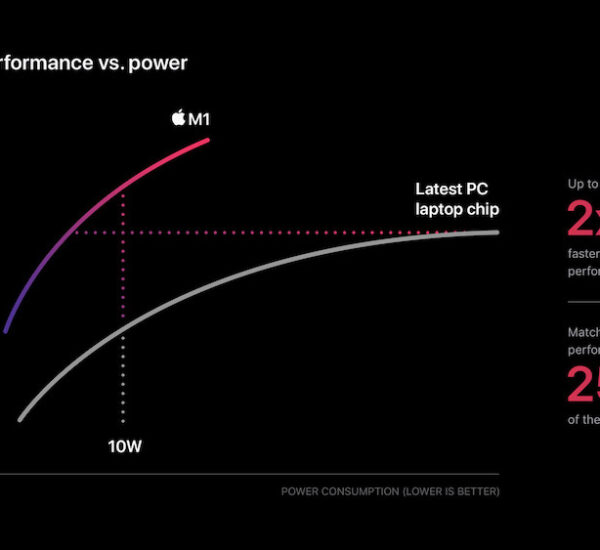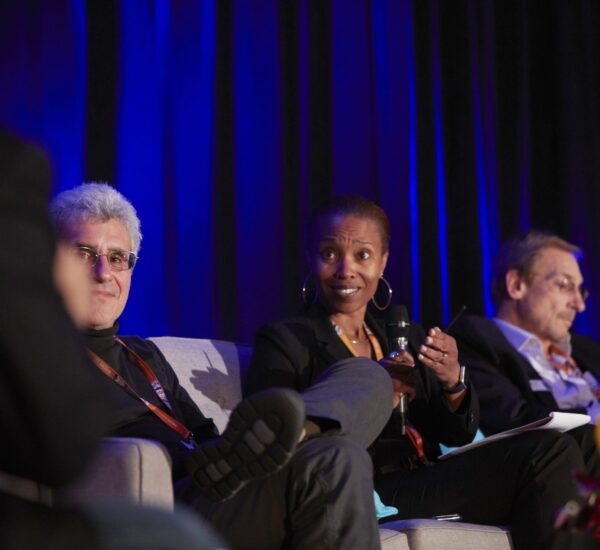In October 2020 I let the government know that I planned on dissolving my company Orali Health. I remember how vivid everything was while I waited in line at the post office with dissolution papers in hand. The coarse texture of the envelope felt like sandpaper in my hands while I understood every word of the couple who were whispering behind me about the validity of mask mandates. I was disassociated from my body. Nothing felt quite real.
I had felt a similar feeling in 2018 when I walked back home after quitting my job to pursue Orali full time, uprooting my entire life, and moving to China. As I walked back from the UBS building in Chicago, I remember stopping to look at a sculpture on the riverfront. It was just so red. How had I never seen this vibrant color amongst all the grey buildings until today? Everything seemed so vivid yet again I was dissociating, unable to grasp how things were going to change. Again nothing felt real.
I haven’t been writing at all since ending Orali. I wanted to get away from the hustle culture and work on myself. I realized during my journey that taking a break is rarely talked about. When I dissolved Orali, everyone expected me to get back to working on another idea. That was the status quo. So instead I wanted to write about my time away from being a startup co-founder, what it taught me, and how I plan on using it going forward into future ventures (that’s right I am jumping back).
Even though I hope this post helps someone who has had to end a venture (or is planning to), it’s also for me. This post gives me closure about the Orali chapter in my life, allowing me to move on to better things.
Ending Orali
The government hadn’t processed my dissolution documents before another fellow entrepreneur asked me “so what are you going to work on now?”. When I told him I was planning on getting a job and maybe going back to school he was shocked. He let me know that in his opinion I should use the contacts I made to launch a new venture within the dental space and that going to school seemed like a waste of time.
To him, it was a “No brainer” to work on another startup.
I know he had no ill intention but he sounded like every entrepreneur who read “The Lean Startup”, “4 Hour Workweek”, or any popular entrepreneurship book that came out in the past 10 years. He sounded like the people on Twitter or Youtube who boldly state that working for someone else won’t make you rich (think “Rich Dad, Poor Dad”) and that school was a mechanism for getting money from unknowing people.
I don’t blame him either for having such a viewpoint. Those were some of the first books I read in college. With each new book I got, the more romanticized the idea of running a startup became. But all these books fail to illustrate a key concept: running a startup can really suck.
The Weight Of Running A Startup
I’ve found people are usually aware of how running a startup is similar to being on a rollercoaster. However, I found that this rollercoaster ride is usually a lonely one with many unforeseen problems during it.
In our accelerator, there were these small standing rooms by the entrance that were meant for taking phone calls. It was like watching a silent movie when someone went inside. You could see how the call was going based on the expressions but you couldn’t hear anything.
I had a call scheduled with an Indian medical device distributor about a potential partnership. Our investors, whose desks were no more than 20 feet away, knew about the call and what it meant to us. Twenty minutes into the call, the director of the device firm told me bluntly that, until Orali showed more progress, they would not be placing us in their portfolio of products.
That hurt.
I had spent days working on documentation with them. I woke up early so I could take calls when it was convenient for them, flew out to India to speak with them, and worked plenty of nights so they would have the information they needed before their day started. The team worked nonstop to change our product so it would be easier for them to sell. All that effort for a no.
I did my best to roll with the punches. I gathered the reasons why they backed out and ended with the platitudes that were expected in business meetings. He told me to not hesitate to reach out if I had any questions since he was so excited about what we were doing (I did reach out once again and never got a response). During that meeting, I was all smiles. When I stepped out my face changed and our investors could tell. The managing director pulled me into a meeting so we could talk about what happened. We came up with a plan for product iterations and went back to work.
But I couldn’t focus.
I didn’t know what to work on.
All I was doing was checking the company’s Asana board. Endlessly refreshing my Gmail as if I was expecting something to change. So I went back to the apartment and took the day off. When I got back, I tucked myself into bed to escape this overwhelming feeling that things were falling apart. It made me feel useless.
Was I even helping the company? Was I the right person to run this startup? I was constantly ruminating about my ability to build a successful company.
This was not an isolated incident. As more occurred, I never felt I could bring this up with others in our accelerator. We were all going through it but as founders, we were constantly pushing this optimistic persona. If we faltered it was only time before the others under our leadership would too. It was exhausting. Every time something didn’t go our way I went to our company standup and portrayed it as a positive to keep the company’s morale high. It seemed unrealistic when I was questioning the long-term survival of the company as well.
These struggles were constant. There was always something on fire and I was expected to take it in stride. This led to a plethora of unexpected problems.
- I gained 35 pounds (eating out every day really adds up when you don’t have time to cook + stress eating)
- I was diagnosed with essential hypertension (my PCP still thinks this was brought on by the stress of starting a venture)
- I stopped reading books that weren’t business or startup books
- I had no social life (tough to make friends when hustle culture has you working Friday nights)
- I was broke (I sold all my stocks and emptied most of my money into Orali)
- My whole identity in life was based on my startup (this made me super shallow)
In October 2020, I took a hard look at my where my life was and was not happy. Jumping into another venture would lead me down this path again.
Was I willing to burn myself out again? No.
Taking A Break
So I decided to step back. I decided to write the goals that I wanted to accomplish within the year:
- Drop to below 150lb within 6 months
- Meditate every morning
- Join a gym
- Fix diet (eat less salt if possible and eat out less)
- Journal everyday
- Read more
- Start investing/saving
- Spend more time with family
- Apply to Masters in Computer Science programs
- Get a job
It was a simple list but starting another venture would not help me get any of those goals. I would have to completely remove myself from the entrepreneurial world if I wanted to achieve all the goals I set out to.
Within 6 months I was able to accomplish all the goals I set out. It was an amazing feeling to have my afternoons now open so I could spend time with my sister, do homework, or go to the gym. Having weekends let me build interesting connections with people not in the startup space. It’s much more interesting to listen to someone who makes art from trash than it is listening to why a dating application is going to revolutionize the world. These new viewpoints have helped me see the world in a different way, letting me escape the microcosm that is tech.
I started to enjoy life more. Philosophy and psychology were two genres of books that I constantly read before diving into Orali. After shutting down, I spent a large chunk of my first paycheck buying books I had to sell before my move. The first one I reread was Seneca’s “On the Shortness of Life”. Like the first time, it reinforced how little time we really do have on this Earth. Combined with other nihilist literature, it made me ask myself if I died today would I be content? No, I wouldn’t have been. I had spent the last 2 years of my life glued to a computer screen working to get an idea off the ground. I had sacrificed my mental health, physical health, and social life to pursue a moonshot. I am happy to have experienced everything that I did (it definitely made me antifragile) but I needed to go back to actually living life. Hiking became part of my bi-weekly routine and so did spending time with my family with the extra time I had available.
I do not regret my decision to take this step back. I’ve strengthed relationships, regained some mental sanity, and prioritized my health.
Jumping Back In
Reading the last section, it seems like things are going great. Why would I want to give it up?
One of my late mentors, Dr. Paul Magelli, said once you get bitten by the entrepreneurial bug the feeling never goes away. Even though I’ve been working at startups since leaving Orali, nothing compares to the speed and thrill you get working on something you own. The companies I am at offer me little skin in the game and require me to jump through bureaucratic hoops to get the smallest features off the ground. This is the antithesis of my mentality of moving fast and breaking things.
Frustration would be one way to describe it but I often find myself pushing members within the company to move faster so we can put something out. However, my pleas often fall on deaf ears. The emptiness I feel during these interactions seems to be filled by the time I spend outside work researching new ideas to work on. Now that I’m in a better position, I think it’s time to get back into working on something that I have more control of the outcomes over. However, this time I plan on doing things differently.
Setting Time For Myself
Hustle culture is overrated. It caused me more problems than it did benefits. I plan on setting aside more time for myself and encouraging those who work for me to do the same.
Waiting To Raise Money
Money Raised ≠ Success
When I was younger, I looked at companies that raised money as organizations that were doing well. However, I realized after taking money from VCs that the amount you’ve raised at what multiple is no indication of success. I plan on waiting until the last minute to raise money. As an investor once told me “raising money is easy when you don’t need to raise money”.
Being More Customer-Centric
We learned this lesson too late in Orali but the customer is always right. We often listened to what investors, thought leaders, and others had to say about what we were building before listening to customers. However, none of these people were paying us for our product and we should have discounted their advice. Borrowing from Bezos, I want whatever I work on in the future to have a relentless focus on making sure what the customer wants makes it into the product.
Helping Others
You learn more from failures than you do from successes and man have I had some failures. Moving forward, I want to make sure to help others so they don’t run into the same pitfalls I did.
Final Thoughts
These past two years have been great. I’ve met some amazing people, been able to get my health in check, and actually take vacations. I’m more content with my life but I still want to change the world in a meaningful way before I die. In my mind, building a startup that is a net benefit to society is the way to do that so I’m ready to go back into the chaos that is running a startup. It might not be right away but I’m excited to see what the future holds.



